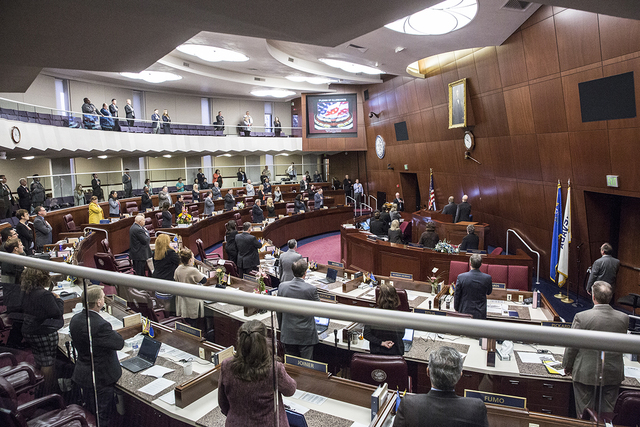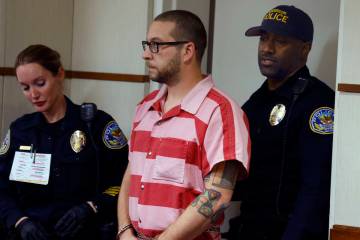Nevada Legislature joins suit claiming CCSD trustees skirted open meeting law
The Nevada Legislature has joined the attorney general’s office in claiming that the Clark County School District violated open meeting law when it sued the state over provisions in the reorganization effort.
Though not originally named in the case, the Legislature filed a motion in Carson City District Court to become a defendant along with the state Department of Education and Board of Education.
The Legislature’s action Tuesday also argues that the trustees do not have legal capacity to sue in their own name. Instead, the filing states, trustees can direct the school district to sue if they do so in a public meeting.
“In this case, because the Board of Trustees brought this lawsuit without first taking action to authorize this lawsuit on behalf of the School District in a public meeting that complied with the (Open Meeting Law), the Board of Trustees violated the (Open Meeting Law),” the filing states.
A district spokeswoman previously said in December that a meeting to discuss potential litigation is not subject to the state’s open meeting law.
But while the law allows public bodies to deliberate with an attorney behind closed doors, any action must be taken in a public meeting, according to the 2016 state Attorney General Open Meeting Law manual.
“This is clear, there’s no doubt here,” said Kevin Powers, chief litigation counsel for the Legislative Counsel Bureau. “The legislative history and the Open Meeting Law manual makes it clear that action has to be taken in an open meeting.”
The district lawsuit seeks to halt the regulation that accompanies the reorganization law. The regulation dictates how the district should implement the overhaul.
But trustees have had a number of issues with the regulation that they feel have been ignored.
Because the regulation was crafted by the Advisory Committee for AB 394 and not the State Board of Education, the district lawsuit claims, the regulation was created in violation of the Nevada Constitution’s separation of powers clause.
The state Legislature denies that the district has the ability to bring a separation-of-powers claim. It also argues that the district did not act in a “diligent and timely manner” to assert the issue in court after the reorganization became law in June of 2015.
“Instead, the School District inexcusably and unreasonably — and potentially strategically — slept on its rights and waited 18 months before bringing this lawsuit,” the court filing states.
The state’s Legislative Counsel Bureau is intervening in the case because the district’s lawsuit attacks the validity of the legislature’s laws and policies, the court filing shows.
As chair of the Legislative Commission, Sen. Michael Roberson authorized the bureau’s legal division to intervene in the matter the week of Jan. 23, according to Powers.
Board President Deanna Wright declined to comment. Roberson could not be immediately reached for comment.
Barry Smith, executive director of the Nevada Press Association, said the law is clear in allowing public bodies to discuss pending legal action with their attorney.
“To me, the attorney should be able to brief them on legal issues, and maybe talk a bit of strategy,” he said. “But discussions among board members again also need to take place in an open meeting.”
Contact Amelia Pak-Harvey at apak-harvey@reviewjournal.com or 702-383-4630. Follow @AmeliaPakHarvey on Twitter.

















